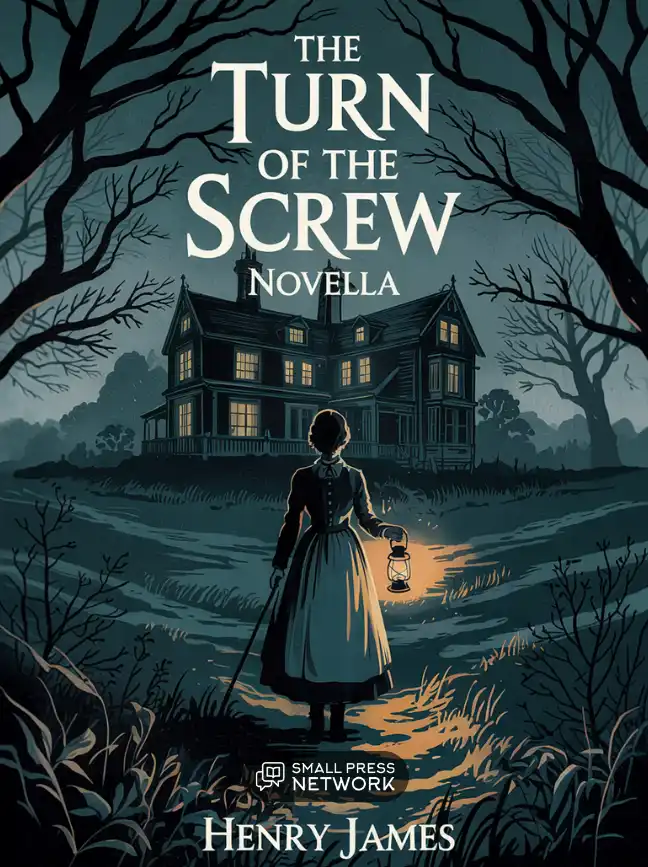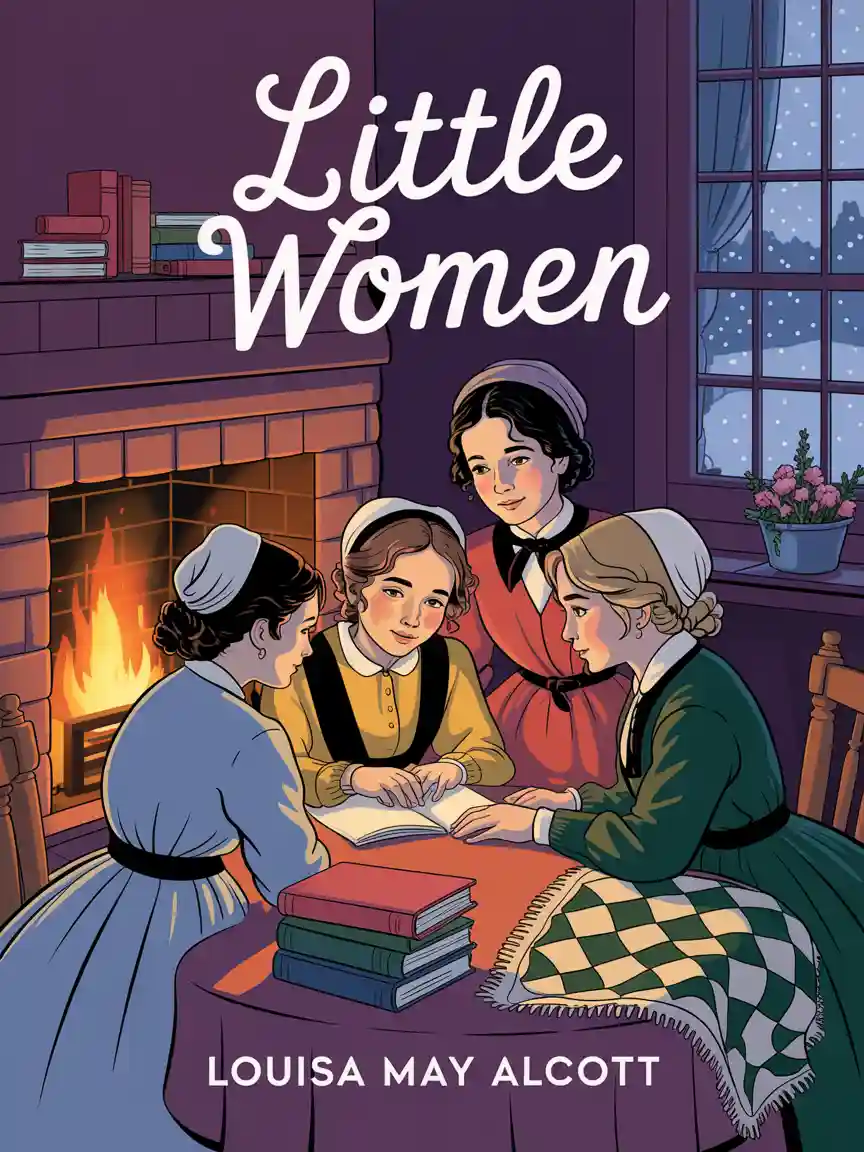Another apartment in the castle.
THE KING AND LAERTES enter .
KING.—Now your conscience must seal my acquittal, and you must give me a place in your heart as a friend; for you have heard,—and with an ear that knows what it hears,—how he who slew your noble father sought my life.
LAERTES.—Yes, that appears well. But tell me why you did not proceed against acts so criminal and of such a deadly nature, as your security, your greatness, your wisdom, everything in short, powerfully urged you to do so.
KING.—Oh! for two special reasons, which may perhaps seem to you to have very little nerve, and which are nevertheless strong for me. The queen, his mother, lives almost only by his eyes; and, as for me (whether she be my salvation or my bane, it matters not!), she is so intimately united to my life and soul, that, as the star cannot move outside its sphere, I move only by her. The other motive which would not permit me to go so far as a public inquiry is the great love which the mass of the people bear him. All his faults would disappear, immersed in their affection, which, like that spring where wood turns to stone, would change its chains into favors; so that my arrows, made of wood too light for so strong a wind, would have returned to my bow instead of going to my mark.
LAERTES.—Thus have I lost a noble father! Thus is my sister thrown into despair! She, whose merit (if praise be permitted to turn back), upright and firm on the highest pinnacle, challenged all our age to equal her perfections! But my vengeance shall come!
THE KING.—Don’t break your sleep for that. You must not think we are made of such flat and soft matter as to suffer danger to come and shake us by the beard, and to regard this as a pastime. You will soon know more. I loved your father, we love ourselves, and this will teach you, I hope, to understand that… ( A messenger enters. ) But what is it? What news?
MESSENGER.—Letters, my lord, from Hamlet; this to your Majesty, that to the queen.
THE KING.—From Hamlet? who brought them?
THE MESSENGER.—Sailors, I hear, my lord; I have not seen them: they were delivered to me by Claudio; he had them from him who brought them.
THE KING.—Laertes, you will hear them. Leave us.
(The messenger leaves.)
The king reads:
“High and mighty Lord,
You will know that I was landed naked in your kingdom. Tomorrow I will ask permission to be admitted into your royal presence, and then, after imploring your pardon for all this, I will relate to you the circumstances of my sudden and even more strange return.
HAMLET.”
What does this mean? Are all the others also back? Or is it all a deception, and is there nothing true?
LAERTES.—Do you recognize the hand?
KING.—It is Hamlet’s handwriting. Naked! and in this postscript he adds: alone. Can you advise me?
LAERTES.—I am lost, my lord; but let him come. All that is sick in my heart warms when I think I shall live to say to his teeth, ‘This is what you have done!’
THE KING.—If it be so, Laertes—and how can it be so?—but how can it be otherwise?—will you be governed by me?
LAERTES.—Yes, my lord, provided you will not tyrannize me into making peace.
KING.—No. Peace with yourself only. If Hamlet be already returned, and, disheartened with his journey, means not to undertake it again, I will engage him in an adventure, now ripe in my mind, where he cannot do so well but fall; his death shall raise no breath of blame, but his mother herself shall exonerate the matter and call it an accident.
LAERTES.—My lord, I will be governed, and more willingly, if you can so arrange your plans that I myself shall be the instrument of them.
KING.—That’s well. You’ve been much talked of since your journey, and that in Hamlet’s presence, because of a talent in which you shine, they say; your merits taken together have not drawn from him so much envy as that one alone; and that one, however, in my eyes, is of the lowest order.
LAERTES.—What merit is that, my lord?
THE KING.—A simple ribbon on the cap of youth; useful, however, for youth is no less decorous, with the light and free livery it wears, than middle age in its mourning and furs, suitable to health and gravity…. Here was, two months ago, a gentleman from Normandy; I myself have seen the French, and I served against them; they ride well; but this gallant cavalier goes in this way to sorcery; he took root in the saddle and obtained from his horse exercises as marvelous as if he had made one and double creature with this brave animal. Truly, he surpassed by so far all my ideas, that in vain I imagined passes and vaultings, I remained below what he did.
LAERTES.—Was he a Norman?
THE KING.—A Norman.
LAERTES—On my life, it’s Lamord!
THE KING.—Himself.
LAERTES.—I know him well; he is, indeed, the ornament and pearl of all his nation.
KING.—He bore witness of you, and gave you the rank of past master, for your knowledge and practice of fencing, and most singularly for your skill with the rapier. He cried it would be a true spectacle to see, if any one could play you; he swore that the fencers of his nation had neither boot, nor parry, nor glance, when you held their ground. Such praise in his mouth, sir, poisoned Hamlet with such jealousy, that he did nothing but wish and demand your sudden return, to make assault with you. According to cm then……
LAERTES.—Well! according to that, my lord?
KING.—Laertes, was your father dear to you? or are you but a portrait of grief, a face without heart?
LAERTES.—Why do you ask me this?
KING.—Not that I think you did not love your father. But what I know is that time breeds love; and what I see, in the trials through which love passes, is that time modifies its brightness and ardor. There is, in the very center of the flame of love, a sort of wick or dim light which at last smothers it. Nothing remains fixed in the same excellence, for excellence reaches superabundance and dies of its own excess. What we will do, we ought to do when we will; for this “we will” comes to change and suffers as many failures and delays as there are around us tongues, and hands, and accidents; and then it is no more than a “we ought,” like the sigh of a bad person, and pernicious because it relieves.44 But straight to the quick! Hamlet returns; what could you undertake to show, in deed rather than in words, that you are your father’s son?
Note 44: (return) In Shakespeare’s time, it was firmly believed that sighs wore out life. In Fenton’s Tragic Discourses (1579), we read: “Why do you not stop in time the source of these burning sighs which have already drained your body of all the healthy humours with which nature had provided it to give juice to your entrails and your secret springs?” Elsewhere again, in Henry VI , Shakspeare spoke of “sighs which consume the blood.” Here, this more or less scientific belief bizarrely complicates and ends with a real Gordian knot the moralist’s observations in which Shakspeare has just indulged. Does it not seem at first like a commentary on Hamlet himself, inadvertently put into the mouth of the king, his enemy? This “I want” which, from delay to delay, becomes exhausted and reduced to an “I should,” is the first theme. Then the projects spent in words are compared to the remorse spent in regrets; let us quickly forget Hamlet, it is no longer a contemplator who dreams instead of acting: it is a question of the bad subject who sighs instead of correcting himself, sinking and losing himself all the more in his faults because he has just, by condemning them for a moment, become more at ease with his conscience. Is that all? No; another leap of imagination! As quickly as Shakespeare’s thought ran from irresolution in practical life to softness in moral life, so quickly does it now pass to a fact of physical life, to a doctrine of the doctors of the time, to the pernicious relief of sighs which only deflate the heart by impoverishing the blood. There are here, in a verse and a half, two comparisons so abruptly launched that the reader’s mind, stunned and as if strangled by the double blow of the lazzo, stops and staggers.
LAERTES.—I would cut his throat in the church itself.
KING.—No place, indeed, should be a sanctuary for murder. Revenge should have no bounds. But, brave Laertes, will you do this? Keep yourself shut in your chamber. Hamlet returned will learn you are also back; we will bring forward people who will praise your skill and give new lustre to the reputation that this Frenchman has made you; we will bring you face to face, and there will be bets laid on your heads. He who is absent-minded, very generous, innocent of all artifice, will not examine the foils. So that you may easily, or with a little cunning, choose a sword not blunted, and, with a stroke of secret address, pay him all for your father.
LAERTES.—That I will do; and to that end I will anoint my sword. I have bought of a quack an ointment so deadly, that you have only to plunge your knife into it, and if it then draws a drop of blood, there is no poultice in the world so rare, were it composed of all the simples that have the most virtue under the moonlight, that can save from death a being that you have only scratched. My point will be touched with this plague, so that, if I prick lightly, it will be death.
KING.—Let us think this over again, let us weigh well what arrangements of time and means may suit our plan. If this should fail, if a failed execution should reveal our design, it would be better not to have tried it. Our project must therefore have a rearguard, a second that still holds, if this one breaks under the test. Gently… let us see a little… we will make a solemn wager on the skill of each of you…… I am there…..When, by your assault, you are heated and thirsty (push the boots more violently to make it so), and when he asks for a drink, I will have prepared a cup for him for that purpose; and if, by chance, he has escaped your poisoned iron, let him only taste it, our efforts can stop there! But stop; what is this noise? ( The queen enters . ) What is it, my dear queen?
THE QUEEN.—Always, on the heels of one misfortune, marches another misfortune, so closely do they follow one another!… Your sister is drowned, Laertes.
LAERTES.—Drowned! Oh! where?
THE QUEEN,—There is, by the stream, a willow that reflects its whitish foliage in the mirror of the current; she was there, making fanciful garlands of buttercups, nettles, daisies, and those long purple flowers that our licentious shepherds call by a coarser name, but our chaste virgins call fingers of the dead. And there, as she climbed to attach to the hanging branches her crown of wild grasses, a hostile branch broke; then her humble trophies, and herself with them, fell into the weeping stream. Her garments swelled and spread; like a water fairy, they supported her for a moment on the surface; meanwhile she sang, scraps of old ballads, as if disinterested in her own distress, or like a creature born and gifted for that element. But this could not last long; so that at last, the poor wretch! her clothes, heavy with the water they drank, dragged her from her sweet songs to a muddy death.
LAERTES.—Alas! she is drowned then!
THE QUEEN.—Drowned! Drowned!
LAERTES.—You have already had too much water, poor Ophelia; so I hold back my tears. But no; this is our usual course, nature keeps her ways, shame may say what it pleases. Let these tears go, and the woman in me is done…45 Farewell, my lord! I feel words of flame that would willingly burst forth, were it not that this madness drowns them.
(He leaves.)
KING.—Let us follow him, Gertrude. How much I have had to do to calm his rage! Now I fear this will give him a new impulse. So, let us follow him.
(They go out.)
Note 45: (return) Thus in Henry V , act IV, scene vi: “But all my mother’s eyes rose and delivered me to tears.”
END OF THE FOURTH ACT.





